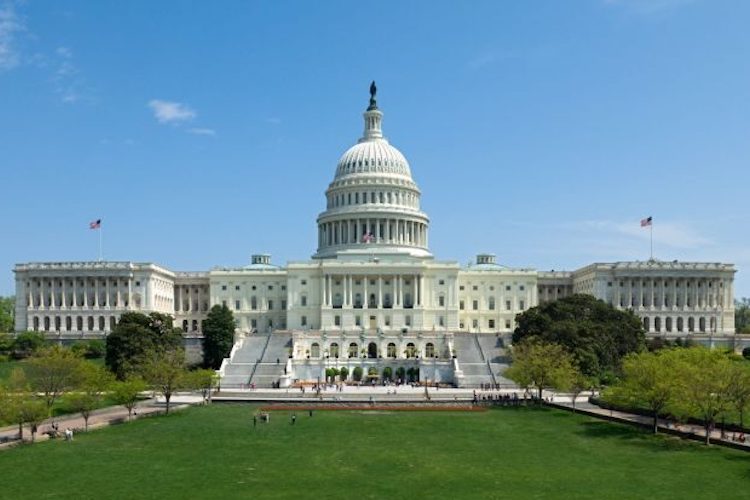WV Press Staff Report
CHARLESTON, W.Va. – “All 50 states, and the District of Columbia, require certain immunizations to attend schools, but some of the specific immunizations they require vary by state.”
That’s what Shannon Kolman, senior health policy specialist with the National Coalition of State Legislators (NCSL) told state lawmakers during Tuesday’s meeting of the Joint Committee on Children and Families. Kolman addressed the committee remotely to discuss vaccine requirements in various states.
“A couple of examples of vaccine requirements where there is more variability among states – for Hepatitis B, there’s 44 states and D.C. that require the vaccine for school entry,” Kolman said. “For Hepatitis A, there’s 17 states that require the vaccine.”
According to Kolman, there are currently no states in the nation requiring a COVID-19 vaccination for school entry.
“California and D.C. both mandated a COVID vaccine for school in 2021,” Kolman noted. “Since that time, D.C. has passed legislation that postpones that requirement. California had mandated theirs through an executive order, and was prepared to develop rule-making, but has since reversed that decision.”
Kolman said that while some states identify vaccine requirements with state-statutes, others depend on administrative bodies – such as State Health Departments – to establish requirements. Kolman noted that West Virginia “expressly lists the vaccines that are required in statute.”
All states, Kolman explained, have laws allowing for medical vaccination exemptions. With regard to religious exemptions, 45 states and Washington, D.C. allow for exemptions. Lastly, 15 states allow exemptions for philosophical objections. West Virginia is one of five states that do not make exemptions for religious or philosophical reasons.
At the conclusion of Kolman’s presentation, Sen Patricia Rucker, R-Jefferson, asked, “Can you tell us how many pharmaceutical companies contribute to the NCSL budget?”
While Kolman did not know the answer, Rucker stated she had “looked it up,” and named several pharmaceutical companies who have previously donated to the NCSL.
Next to appear before the committee was Dr. Joseph Evans, former chief medical officer and chair of Pediatrics at Marshall Health. Evans was on-hand to discuss the “science of vaccines.”
“The problem is [the vaccines] work so well that we’re not scared of these darn things (viruses) anymore,” Evans said, adding that smallpox is the only disease to be eradicated through vaccines.
“We’ve come a long way in controlling these deadly diseases,” Evans added. “It makes me so proud that we’re (West Virginia) one of the leaders. We often get called out for our poor health statistics – overweight, diabetes, addiction – we’re a leader in this. Immunization from vaccine-preventable diseases makes us all safer.”
Despite being a national “leader,” according to Evans, the state’s vaccination rates among two-year-olds is “not good.”
“We’re among the bottom of the country,” Evans said. “But our vaccination rates for kindergarteners are among the best. Since 2017, we’ve been at 97% or greater vaccine rates for our kindergarteners.”
Evans believes that the difference comes from the statute requiring vaccination for school entry.
Evans then addressed the concept of “herd immunity,” explaining that “if a vaccine works 95% of the time, and 95% of people are vaccinated,” the people who are unvaccinated, or the vaccine does not work for them, are better protected.
“If enough people have immunity then a virus is less likely to spread,” Evans noted. “Those folks won’t come into contact with someone who is infected.”
The final speaker of the day was West Virginia’s State Epidemiologist Shannon McBee, who spoke briefly regarding the compulsory school immunization law exemption process.
“Medical exemptions are granted when a student has a contraindication or a precaution to a vaccine,” McBee said. “West Virginia is recognized nationally as having an exemplary immunization model, with four states recently changing their laws to mirror West Virginia’s.”
“Contraindications are conditions within individuals that increase the risk for serious adverse reactions,” McBee added. “Examples include immuno-suppression medications or pregnancy, just to name a few.”
A precaution, McBee explained, is a situation which may cause diagnostic confusion, or prevent the vaccine from creating immunity. One example of a precaution would be an individual undergoing chemotherapy treatments.
According to McBee, in order to request a medical exemption, the child’s physician must submit a request to the Bureau for Public Health (BPH), and provide evidence of the need for the exemption. A determination of the request will then be made within 20 days.
At the conclusion of McBee’s presentation, Sen. Eric Tarr, R-Putnam, asked, “That process, is it a rule that’s established by the department (DHHR), or is it statutory?”
After being advised that it is, in fact, a legislative rule, Tarr requested and received further confirmation that the legislature could revisit the rule if it so chooses.
The Joint Committee on Children and Families will meet again during next month’s Interim Session, scheduled for Nov. 12 – 14 in Wheeling.

